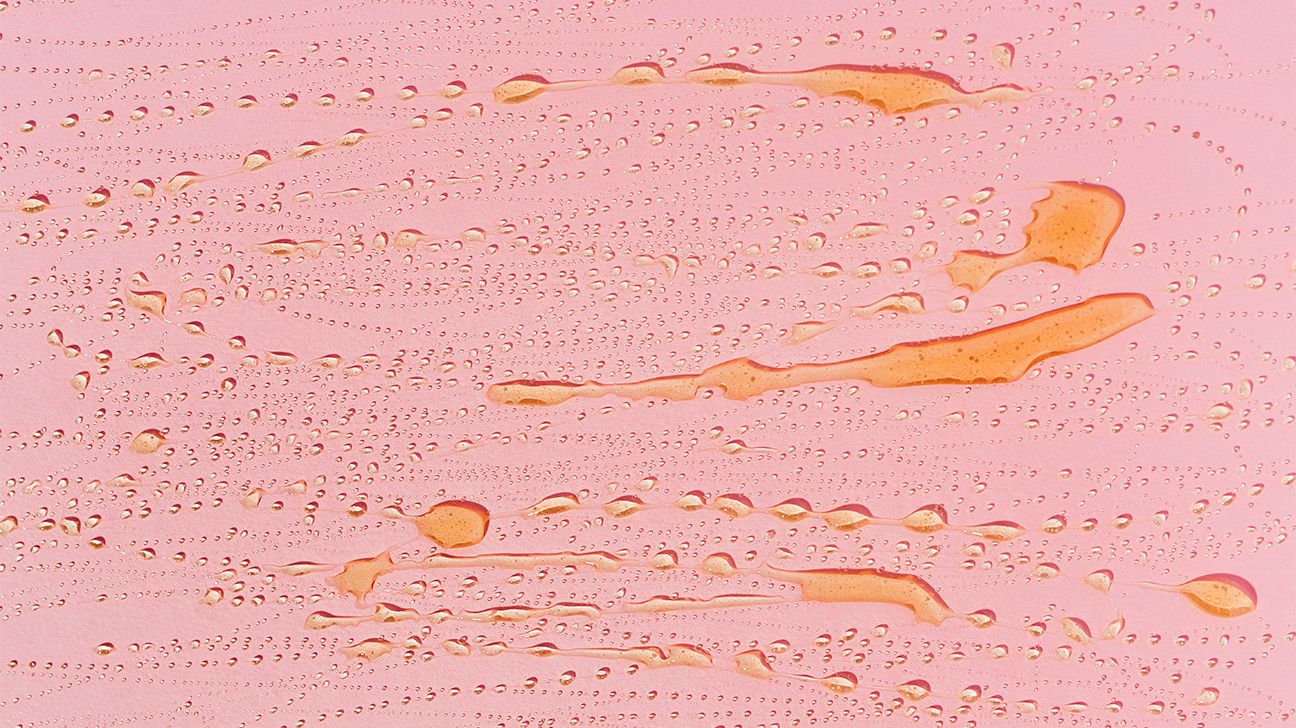Folks with eczema know the skin struggle is real. This chronic condition can create itchy, scaly lesions anywhere on your body.
Some folks say they’ve gotten relief from topical honey treatments 🍯. But does honey really work? Maybe. Here’s what the science says.

TBH, there’s not a ton of research to prove honey can treat eczema. There have been a few small studies with mixed results.
A 2014 pilot study included 15 people who had eczema lesions. Each participant used Kanuka honey on one side of their body and a control cream on the other. After 2 weeks of daily use, there was no difference in eczema severity on either side.
A small study from 2017 tested the use of Manuka honey on eczema and found that lesions treated with honey improved and were less inflamed than the lesions that weren’t treated.
Another small 2017 study tested the use of honey ear drops on ear eczema. Fifteen participants used the drops 3 times a day for 2 weeks. At the end of the study, participants reported less discomfort, less itching, and fewer signs of eczema without any adverse reactions.
Research suggests honey is chock-full of good-for-you potential. It’s been used as a natural remedy for all kinds of conditions — like throat infections, eye diseases, and wounds — thanks to its antioxidant, antimicrobial, and anti-inflammatory properties.
Honey is also slightly acidic, with an average pH of 3.9, which helps it kill bacteria and clear dead skin cells. Plus, honey’s humectant powers help retain moisture, which can prevent dry patches on the skin.
All this means honey might be able to help your eczema. But again, we need more research to prove this 💯.
Here’s how you can DIY an eczema honey treatment:
- Apply a thin layer of high grade honey to your eczema, using a clean cotton swab.
- Cover the area with a bandage or gauze.
- Leave the dressing on overnight.
- Remove the gauze in the morning.
- Gently clean the area with warm water and mild soap.
Should I be using a certain type of honey?
Manuka honey is a much-loved home remedy and is known for its antibacterial properties, so it’s a good choice for an eczema remedy.
It’s also important to use medical-grade honey, which has been filtered and treated to get rid of potential contaminants.
If you don’t want to use straight-up honey, you can use products that contain it.
Here are some products to check out:
Honey can sometimes trigger minor redness, itching, or swelling. More severe allergic reactions are also possible but very rare.
Seek medical care ASAP if you experience:
- nausea
- fainting
- vomiting
- dizziness
- wheezing
- stomach cramps
- trouble breathing
- swelling of your face, mouth, or throat
You can def use honey on your skin and enjoy it as a tasty treat (we love a twofer), but be sure you stick to the good stuff. Always opt for high quality, filtered honey. This reduces your risk of food poisoning and other tummy troubles.
PSA: Kiddos shouldn’t eat honey until they’re at least 12 months old. Honey might contain a bacterium called Clostridium botulinum, which can cause infant botulism.
Interested in other home remedies? Here are a few more buzzworthy options:
- Calendula has been used for centuries as a way to heal burns, cuts, and inflammation.
- Coconut oil has antibacterial and anti-inflammatory properties, which may help improve your skin barrier and reduce the risk of infection.
- Tea tree oil has been found to have antibacterial, anti-inflammatory, and wound-healing prowess. It might help prevent infections and relieve dry skin.
- Sunflower oil might help hydrate and protect the outer layer of your skin. It could also relieve inflammation and itching.
- Colloidal oatmeal, which is made from finely ground oats, can help soften scaly patches and calm inflamed skin. Just add some to a lukewarm bath and soak for 10 to 15 minutes a few times a week.
- Evening primrose oil is used in the treatment of diseases that cause chronic inflammation, including eczema.
Eczema usually isn’t dangerous, but it can be annoying AF. Talk with a healthcare pro if your eczema:
- covers a large area of your body
- interferes with your day-to-day life
- has pus or red streaking (these can be signs of an infection)
You should also let them know if home remedies aren’t working. They can help you come up with a solid treatment plan.
tl;dr
- Eczema is a chronic skin condition that affects about 10 percent of Americans.
- While there aren’t enough studies to prove honey can definitely treat every case of eczema, lots of folks say it can help relieve symptoms.
- When applying it topically, be sure you use medical-grade honey that is free of possible contaminants. You can also try honey-based eczema products.
- If honey doesn’t do the trick, talk with a healthcare professional about better treatment options.

